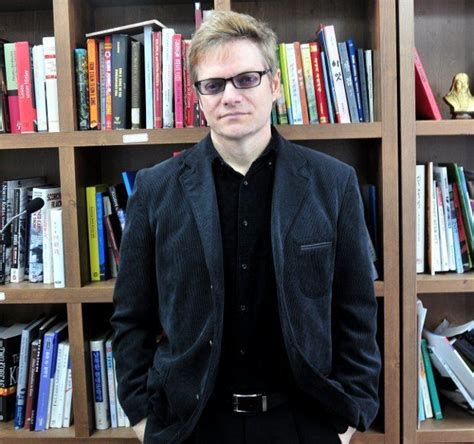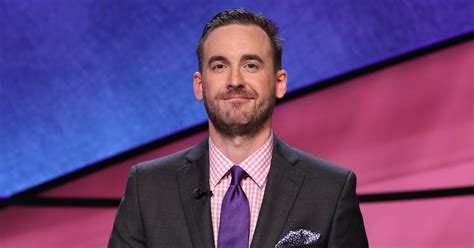A Quote by Brian Reynolds Myers
Life cannot be classified in terms of a simple neurological ladder, with human beings at the top; it is more accurate to talk of different forms of intelligence, each with its strengths and weaknesses. This point was well demonstrated in the minutes before last December's tsunami, when tourists grabbed their digital cameras and ran after the ebbing surf, and all the 'dumb' animals made for the hills.
Quote Topics
Related Quotes
The intelligence displayed by many dumb animals approaches so closely to human intelligence that it is a mystery. The animals see and hear and love and fear and suffer. They use their organs far more faithfully than many human beings use theirs. They manifest sympathy and tenderness toward their companions in suffering. Many animals show an affection for those who have charge of them, far superior to the affection shown by some of the human race. They form attachments for man which are not broken without great suffering to them.
Humans call animals 'dumb'... after they robbed their entire own precious world. They are intelligent beings in their own right, and thoroughly self-sufficient... if not molested by humans. Yet, after millennia of slavery by selfish/callous humans they're made to look dumb! The 'superior species' in their situations would, too, appear 'dumb'.
Beyond [known peoples of black West Africa] to the south there is no civilization in the proper sense. There are only humans who are closer to dumb animals than to rational beings. They live in thickets and caves, and eat herbs and unprepared grain. They frequently eat each other. They cannot be considered human beings.
[The Other Woman]s not only a story about friendship and women and how we support one another and how we're there for one another, but it also shows how different these women are. They each have their own strengths and weaknesses, and those strengths and weaknesses help each one of them in their own way.
People over the age of thirty were born before the digital revolution really started. We've learned to use digital technology-laptops, cameras, personal digital assistants, the Internet-as adults, and it has been something like learning a foreign language. Most of us are okay, and some are even expert. We do e-mails and PowerPoint, surf the Internet, and feel we're at the cutting edge. But compared to most people under thirty and certainly under twenty, we are fumbling amateurs. People of that age were born after the digital revolution began. They learned to speak digital as a mother tongue.
We must begin looking at each other as brothers and sisters...and not walking brochures. We must see each other's strengths and encourage those strengths....We must see each others weaknesses and be patient with those weaknesses... sometimes even look beyond what we see as "weaknesses" and move on with compassion and love and respect. That takes true faith.
For success I consider three factors are necessary: firstly, an awareness of my own strengths and weaknesses; secondly, an accurate understanding of my opponent's strengths and weaknesses; thirdly, a higher aim than momentary satisfaction. I see this aim as being scientific and artistic achievements, which place the game of chess on a par with other arts.
It has been an obsession of human beings to create a hierarchy that places the human species on top and lumps all the "other animals" together beneath us. The resulting "speciesism" allows us to look upon animals as less deserving of all manner of rights and considerations than humans. To support this lower status, humans have argued that animals act instinctually; don't have souls; don't feel physical pain like we do; and lack self-consciousness, cognitive intelligence, emotional feelings, morality, and ethics.
A doctor, like anyone else who has to deal with human beings, each of them unique, cannot be a scientist; he is either, like the surgeon, a craftsman, or, like the physician and the psychologist, an artist. This means that in order to be a good doctor a man must also have a good character, that is to say, whatever weaknesses and foibles he may have, he must love his fellow human beings in the concrete and desire their good before his own.
I have always thought that pandas, in evolutionary terms, are the most sophisticated animals in the world. They cannot look after themselves; they are useless at reproducing. But to compensate, they have managed to persuade the most advanced creatures on the planet - human beings - to care for their every need.
I think it is said that Gauss had ten different proofs for the law of quadratic reciprocity. Any good theorem should have several proofs, the more the better. For two reasons: usually, different proofs have different strengths and weaknesses, and they generalise in different directions - they are not just repetitions of each other.
Self-awareness is a trait - or maybe 'practice' is the more accurate way to put it - that everyone can always improve at. It is part emotional intelligence, part perceptiveness, part critical thinking. It means knowing your weaknesses, of course, but it also means knowing your strengths and what motivates you.



































